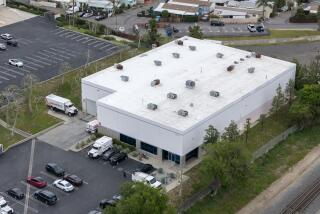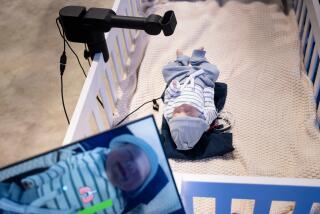Q&A: Why the FBI’s hack of Apple iPhone could remain top secret
Unlocking the iPhone belonging to one of the San Bernardino shooters might not have the far-reaching effects that some once thought.
For one thing, federal officials have been quiet on what -- if any -- data they got from the phone about the terrorist attack, which killed 14 people on Dec. 2.
It’s also looking unlikely, at least for now, that other law enforcement agencies wll have quick access to the hack.
Why is the FBI not sharing the process used to gain access to Syed Rizwan Farook’s iPhone 5c?
Though the FBI might want to use the new tool to help solve outstanding criminal cases, doing so would also make the process subject to discovery during criminal trials and place the information in the public domain, according to the official, who was not authorized to discuss the case and spoke on the condition of anonymity.
Any application of the method used to access Farook’s phone would probably be limited to investigations that are unlikely to result in criminal cases, the official said.
“A technical option developed for a particular computing device may not work on other devices,” the FBI official said. “The effectiveness of these lawful methods may be limited by time and resources, and may lack the scalability to be a viable option for most investigations.”
What do we know about what was on Farook’s phone?
Officials have not provided any details about the contents of the phone.
The FBI originally asked Apple to unlock the iPhone because they believed the encrypted data may answer questions about whether the attackers had assistance. Apple refused, and they were able to get an “outside party” to do it.
They thought the phone might also provide information about where they went before and after they killed 14 people during a holiday party on Dec. 2.
Officials recovered Farook’s iPhone from a black Lexus parked outside his Redlands home.
The FBI has said Farook and his wife appear to have acted alone. Officials said they were “self radicalized” and had sympathies for Islamic terrorist groups. But they said the attack was not part of a larger plot.
A friend of Farook’s was charged with providing guns used in the attack. But authorities said he was not involved in the attack itself. In fact, surveillance video shows him at work at the time.
There are other phones like Farook’s that law enforcement would like to unlock, right?
News that the FBI found a way into Farook’s phone Monday drew excited reactions from police, who have long complained that encrypted data represents a major roadblock to routine police investigations. Thousands of smartphones sit in police evidence lockers across the country. At least 400 locked devices are in the possession of the Los Angeles Police Department and the L.A. County Sheriff’s Department.
FULL COVERAGE: Apple’s fight with the FBI >>
“From all the chiefs that I’ve talked to, we’re hopeful this will give us some insight into how we’re going to be able to get into some of the phones sitting in all of our evidence rooms,” said Terry Cunningham, police chief in Wellesley, Mass., and president of the International Assn. of Chiefs of Police. “We’re clearly anxious to learn what they did and how they did it and if it can be replicated.”
Federal investigators have said little about how they gained access to Farook’s phone. The iPhone 5c was at the center of a looming court battle between the FBI and Apple, which rose out of a court order demanding that Apple create software that would allow the FBI to access encrypted data on the device.
Internal government policy might also limit what, if anything, the FBI could share about the method used to crack Farook’s phone, according to Andrew Crocker, a staff attorney with the Electronic Frontier Foundation, a digital rights advocacy group.
Follow @lacrimes and @JamesQueallyLAT for crime and police news in Southern California.
ALSO
FBI hacks iPhone: Does this make your phone less private?
FBI vs. Apple: How both sides were winners and losers
Quiz: Is this a way to hack an iPhone ... or kill James Bond?
More to Read
Start your day right
Sign up for Essential California for news, features and recommendations from the L.A. Times and beyond in your inbox six days a week.
You may occasionally receive promotional content from the Los Angeles Times.








